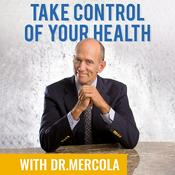Butyrate is a short-chain fatty acid (SCFA) produced when gut bacteria ferment dietary fiber. It serves as the primary fuel for colon cells, including L-cells that produce GLP-1
When your gut produces enough butyrate, natural GLP-1 secretion works properly, supporting appetite control, insulin sensitivity, and weight regulation
This butyrate-driven GLP-1 pathway represents your body's built-in weight management system. My new book, "Weight Loss Cure; Melt Fat Naturally With Your Own GLP-1," provides a step-by-step plan to rebuild butyrate production, restore natural GLP-1 signaling, and correct the root drivers of weight gain
Low butyrate production disrupts GLP-1 signaling and contributes to obesity, insulin resistance, and metabolic disease
Beyond weight regulation, butyrate also supports gut integrity, immune balance, and protection against chronic disease



